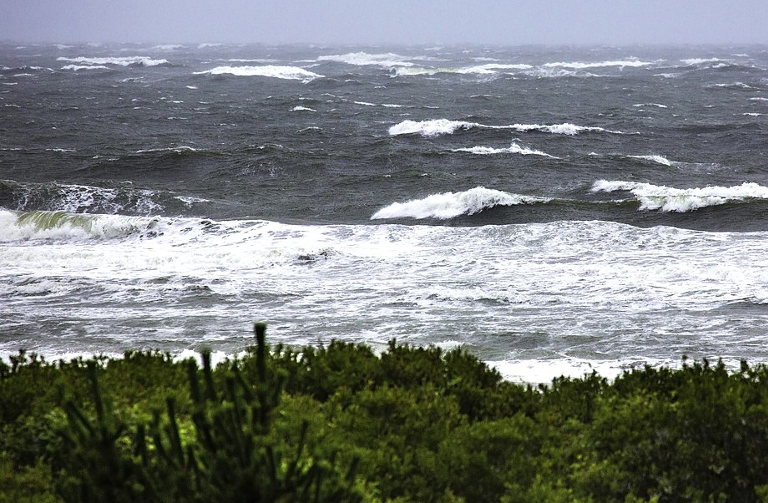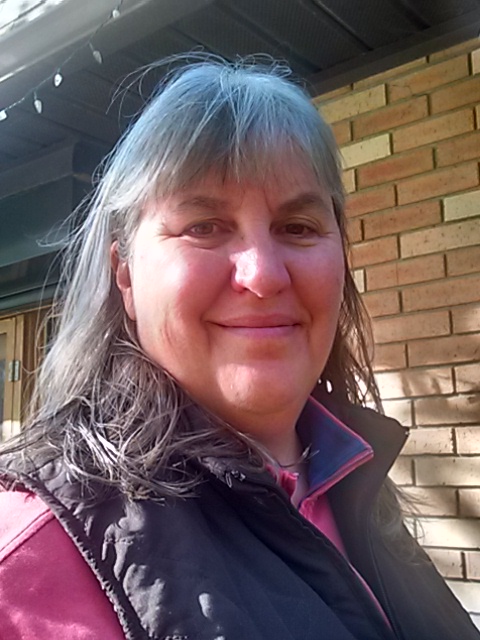A year ago I wrote an article discussing Hurricane Harvey. Here we are again watching another 1 in a 1,000 year hurricane disaster unfold. I won’t try to summarize all the other weather disasters that have been unfolding around the world this year. This year is going to be the fourth warmest year on record behind 2016, 2015, and 2017 respectively. Our global climate is obviously in chaos and weather disasters becoming more frequent and severe.
In the days leading up to Hurricane Florence’s landfall meteorologists struggled to find words to describe this storm’s unbelievable potential for destruction. The storm was “biblical”, “unprecedented”, “historical”, “a monster”…yet none of the words really conveyed the reality of risk that few have yet faced. Governor’s of both Carolina’s took the warnings seriously and called for evacuation. Many heeded their warnings but the fact that some people chose to stay and ride out the storm showed a dangerous lack of understanding for the danger they faced. The media’s obsession for making storm disasters into morbid entertainment was in full form when one reporter struggled to stand against wind that seemingly had little affect on nearby pedestrians strolling by. Like passing a highway accident we can’t seem to turn our eyes away.
The fact that Florence didn’t inflict greater wind damage when it made landfall was a fortunate break that had to do with the storm weakening after its final eyewall replacement cycle. By Thursday evening September 13th hurricane reconnaissance indicated that a new eyewall was not likely to be completed; the eastern section of the wall not likely to reform. This prevented Florence from rebuilding the strength of its winds and the storm continued to weaken as it lumbered towards landfall. Instead of a Category 4 hurricane, Florence came ashore a Category 1 hurricane with sustained winds of 90 mph versus 140 or higher.
Can you imagine the damage if this storm had been similar to last year’s Maria, a Category 4 hurricane that dropped to Category 3 as it traveled 100 miles diagonally across Puerto Rico in 8 hours. What if Florence had completed it’s eyewall and turned back into a Category 4 hurricane creeping slowly along the Carolina shoreline? Hurricane Florence crawled across 200 miles in 72 hours dumping “unprecedented” amounts of rain on top of ground saturated from a long, “record breaking” amount of precipitation this spring and summer. The wind damage of a stronger storm would have been an order of magnitude greater, totally flattening buildings, infrastructure, and vegetation as it moved slowly inland. Can you imagine the devastation in addition to the catastrophic flooding that is currently unfolding? We are still days and weeks away from knowing the full extent of flood damage.
It seems we are constantly witnessing “unprecedented” violent storms, “historic” record-breaking summer heat waves, “ferocious” winter snowstorms, “never-before-seen” wildfires, and “torrential” rainfall that results in a “deluge” of flooding. We use adjectives that try to impart our sense that storms are bigger, stronger, or greater, yet after too frequent use they seem to lose their value. We don’t seem to realize the magnitude of what is happening or the danger. Does a “never-seen-before ” event that happens every few years really mean something to us? Does a “1 in a 1,000 year” event that happens twice in two years become a warning of something different happening? Perhaps we are becoming numb to the reality of our climate changing.
I keep expecting that most people will finally wake up and realize how serious climate change has become and do everything possible to prevent further climate destabilization. Unfortunately, this does not appear to be the case. The media will move on to the next disaster. The damage will be horrific and some will send in donations believing they have done what they could, secretly glad it was them and not me. The unintended result will be that our economy will be stimulated by the money spent repairing the damage and we will conveniently forget we were warned. We could have done something to avoid the damage in the first place. Is it possible politicians don’t see the connection between recent spending and disasters? Does it really not matter how our economy is stimulated? Politicians brag about bringing down unemployment or raising GDP, while they decry climate change a hoax. By all means, let’s dig up more coal, pump more oil!
Years after Super-storms Sandy, Katrina, Harvey, and Maria reporters return and find the poor even poorer, their homes still not repaired, communities still struggling to rebuild. How many storms can we take before we can no longer rebuild? Look closely and you will see climate change migration within our borders as well as across them. I’ve given up trying to understand how denial is possible. I watch events unfolding that scientists predicted over a decade ago.
Recently someone sent me a paper entitled “Deep adaptation: A Map for Navigating Climate Tragedy” written by Prof. Jem Bendell. It is a stark assessment of our changing climate and concludes that we are not likely to prevent further destabilization. The paper offers his reasons for believing climate change is non-linear, why our forecasts are wrong, and what this means for our future. He points out that professional researchers seem reticent to sound the alarm. He suggests it’s time for scientists to break with conventional academic decorum and be frank in describing the dangers to society in collapse. I agree with Dr. Bendell that we have likely passed the point of return and it is time to begin talking openly about what this means to society.
“It is a truism that we do not know what the future will be. But we can see trends. We do not know if the power of human ingenuity will help sufficiently to change the environmental trajectory we are on. Unfortunately, the recent years of innovation, investment and patenting indicate how human ingenuity has increasingly been channeled into consumerism and financial engineering. We might pray for time. But the evidence before us suggests that we are set for disruptive and uncontrollable levels of climate change, bringing starvation, destruction, migration, disease and war.”
Maybe it’s time to admit failure and talk openly about how we deal with the collapse of civil society. Did passengers on the Titanic reach the point where they knew it was hopeless and openly discussed the number of lifeboats available and who would be given the opportunity to board them? At what point did the Captain announce that the ship was going down and everyone needed to get off? Was it cultural programming that allowed them to behave “civilized” enough to apportion access to resources (wealthy women and children first)? Will we be as civil or will we leave it to survival of the fittest, a fight to the bitter end? What did it mean for people in lifeboats to leave some groups behind (men and poorer passengers) standing on deck knowing their life was being forfeited? What did it feel like to be considered less valuable than richer patrons who were given first opportunity to board a lifeboat? Have you looked around and wondered how you would fare in your community? Don’t we have similar biases in the US, where the wealthiest citizens are given tax breaks while programs that serve the middle class and poor are cut?
Bendell concludes “Disruptive impacts from climate change are now inevitable. Geoengineering is likely to be ineffective or counter-productive. Therefore, the mainstream climate policy community now recognizes the need to work much more on adaptation to the effects of climate change. That must now rapidly permeate the broader field of people engaged in sustainable development as practitioners, researchers and educators. In assessing how our approaches could evolve, we need to appreciate what kind of adaptation is possible. Recent research suggests that human societies will experience disruptions to their basic functioning within less than ten years due to climate stress. Such disruptions include increased levels of malnutrition, starvation, disease, civil conflict and war –and will not avoid affluent nations. This situation makes redundant the reformist approach to sustainable development and related fields of corporate sustainability that has underpinned the approach of many professionals (Bendell et al, 2017). Instead, a new approach which explores how to reduce harm and not make matters worse is important to develop. In support of that challenging, and ultimately personal process, understanding a deep adaptation agenda may be useful.”
Can we reduce harm and not make matters worse? I think Bendell’s paper is worth reading. I agree we need to move beyond just thinking about political action, sustainable development, or efforts to reduce climate change. We have to admit that our efforts have been largely unsuccessful and it’s time we face our situation, find ways of coming to terms with our bleak future. There aren’t enough lifeboats! The dangers are increasing exponentially and the window of opportunity to prepare is closing. By preparing I mean securing access to emergency supplies of food, shelter, and energy.
Residents of North Carolina will suffer historic flood damage and loss of property but they were lucky this time because it could have been much, much worse. Too many people stayed to ride out the storm and were lucky it wasn’t worse, fortunate there were people willing and able to rescue them. All our homes and communities will likely be impacted by disaster sooner rather than later, and eventually people will not find the resources to help them rebuild. It is hard to find hope for the best when the worst is upon us!
It’s time we talk openly about the emotional and psychological devastation of losing everything, of not being able to rebuild, of being unable to help others in need. I believe we need to make room in our discussions for spiritual faith, something too often deemed irrelevant in the face of religious fundamentalism. I know that my own belief in what is “unseen and unproven” yet gives me strength that helps me through difficult times. Faith in our basic goodness gives us reason to behave better towards others. Now more than ever we need to reaffirm our faith in the goodness of humanity and say “no” to baser instincts. It will not hurt to pray for strength as the flood washes over us.
Teaser photo credit: By Beau Considine from Upperco, MD, USA – storm’s coming, CC BY-SA 2.0






